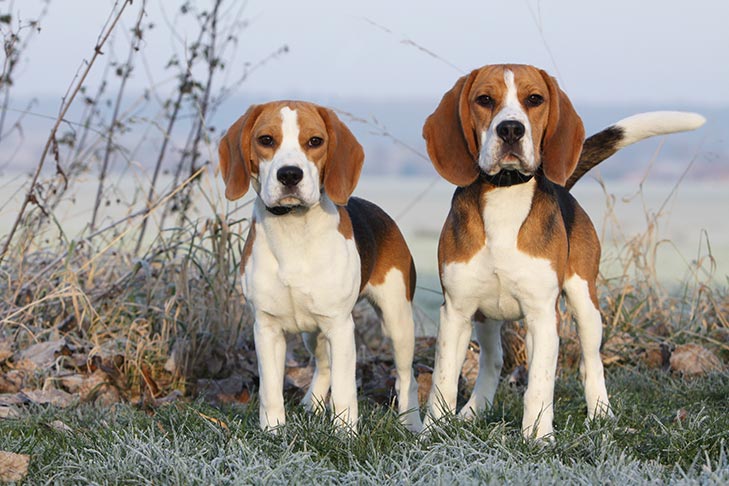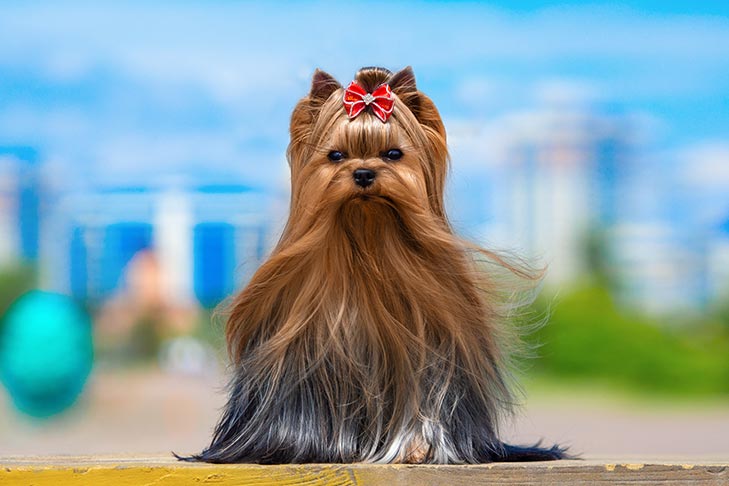Dogs are more than just pets; they become cherished members of our families. When welcoming a furry friend into our lives, longevity is a crucial factor to consider. A longer lifespan means more moments, memories, and companionship. If you’re seeking a dog breed that offers both loyalty and longevity, here’s a curated list of eight breeds renowned for their extended lifespans.
1. Chihuahua: The Tiny Wonder

Despite their small stature, Chihuahuas pack a big personality. Surprisingly, these diminutive dogs often live up to 15-20 years, making them one of the longest-living dog breeds. Their compact size and robust health contribute to their impressive longevity.
2. Dachshund: Loyal and Sturdy

Dachshunds, famously known as “wiener dogs,” boast a lifespan of 12-16 years. Their loyal nature and playful demeanor endear them to families, while their relatively low incidence of major health issues contributes to their extended lifespan.
3. Pomeranian: Fluffy and Enduring
:strip_icc()/Pomeranian-GettyImages-1014940472-a6ba0030958a4bbba0eee3e982ee9bc6.jpg)
Donning a luxurious coat of fur, Pomeranians are not just a pretty face. These spirited companions often live 12-16 years, surprising many with their longevity despite their small size.
4. Beagle: Loving and Energetic

With their friendly disposition and boundless energy, Beagles bring joy to households. Typically, they live 12-15 years and thrive when engaged in physical activities, contributing to their overall health and longevity.
5. Yorkshire Terrier: Feisty and Long-Lived

The Yorkshire Terrier, or “Yorkie,” may be small in size but boasts a long lifespan of 14-16 years. Their tenacity, coupled with proper care, helps them lead a healthy, extended life.
6. Shih Tzu: Affectionate and Resilient
:strip_icc()/shih-tzu-dog-breed-profile-1117999-hero-5541b7f6f936478ca766d85ff5af202e.jpeg)
Known for their beautiful, flowing coats and affectionate nature, Shih Tzus often live between 12-16 years. Regular grooming and attentive care contribute significantly to their longevity.
7. Toy Poodle: Intelligent and Age-Defying
:max_bytes(150000):strip_icc()/toy-poodle-two-teddy-bear-haicuts-996957608-2000-06f3a2ad7d7942408fca101fca5f01fe.jpg)
Intelligent and trainable, Toy Poodles often live 12-15 years. Their hypoallergenic coat and overall adaptability make them a popular choice for families seeking a long-living companion.
8. Maltese: Elegant and Long-Lasting

The Maltese, with its elegant white coat, typically lives between 12-15 years. Their gentle temperament and relatively minimal health issues contribute to their extended lifespan.
Conclusion
Choosing a dog breed is a decision that shapes many years of companionship and love. The breeds mentioned here aren’t just known for their longevity but also for their loyalty, affection, and unique personalities. When welcoming a furry friend into your life, remember that proper care, attention, and love are vital to ensuring a longer, healthier life for your canine companion.
FAQs:
1. How can I ensure my dog lives a long and healthy life?
Providing a balanced diet, regular exercise, routine veterinary check-ups, proper grooming, and a loving environment are crucial factors in ensuring your dog’s longevity.
2. Are mixed-breed dogs more likely to live longer?
Mixed-breed dogs often benefit from genetic diversity, which can contribute to their overall health and potentially increase their lifespan compared to purebred dogs.
3. Should I consider a dog’s size when looking for a long-living companion?
Smaller dog breeds often tend to live longer than larger breeds, but each individual dog’s lifespan is influenced by various factors, including genetics, care, and overall health maintenance.
4. Can certain health conditions affect a dog’s lifespan?
Yes, certain health conditions, such as obesity, dental issues, heart problems, and joint disorders, can impact a dog’s lifespan. Regular veterinary care and a healthy lifestyle can mitigate these risks.



